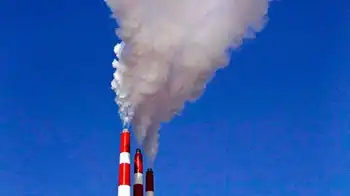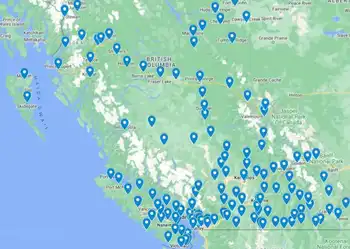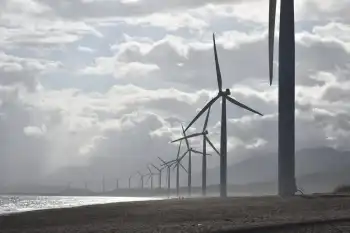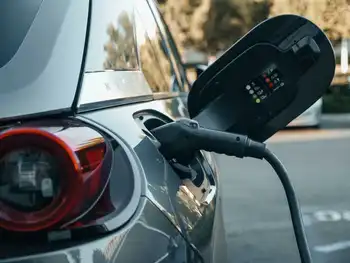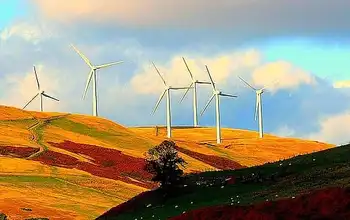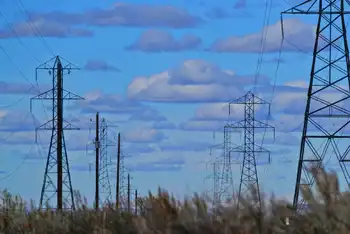Nova Scotia Cap-and-Trade Program joins Western Climate Initiative to leverage emissions trading IT systems, track allowances, and manage compliance, while setting in-province caps, carbon pricing signals, and third-party verified reporting for industrial and fuel suppliers.
Key Points
A provincial emissions trading system using WCI services to cap GHGs, track allowances, and enforce verified compliance.
✅ Uses WCI IT system to manage allowances and registry
✅ Initial trading limited to in-province participants
✅ Third-party verification and annual reporting deadlines
Nova Scotia is yet to set targets for its new cap and trade regime to reduce greenhouse gases, but the province announced Monday that it has joined the Western Climate Initiative Inc. -- a non-profit corporation formed to provide administrative and technical services to states and provinces with emissions trading programs.
Environment Minister Iain Rankin said joining the initiative would allow the province to use its IT system to manage and track its new cap and trade program.
Rankin said the province can join without trading greenhouse gas emission allowances with other jurisdictions -- California, Quebec, and Ontario are currently linked through the program, with Hydro-Québec's U.S. sales highlighting cross-border dynamics. Nova Scotia currently has no plans to trade outside the province as it works on emissions caps Rankin said will be ready sometime in June.
#google#
Nova Scotia is yet to set targets for its new cap and trade regime to reduce greenhouse gases, but the province announced Monday that it has joined the Western Climate Initiative Inc. -- a non-profit corporation formed to provide administrative and technical services to states and provinces with emissions trading programs.
Environment Minister Iain Rankin said joining the initiative would allow the province to use its IT system to manage and track its new cap and trade program.
Rankin said the province can join without trading greenhouse gas emission allowances with other jurisdictions -- California, Quebec, and Ontario are currently linked through the program. Nova Scotia currently has no plans to trade outside the province as it works on emissions caps Rankin said will be ready sometime in June.
"By keeping our system internal it ensures that our greenhouse gas reductions are happening within our province," said Rankin. "But we do have that opportunity (to join) and if there are new entrants or we need more access to credits then that may shift our strategy."
The use of the system will cost Nova Scotia about US$314,000 for 2018-19, with an annual cost in subsequent years of about US$228,000 or more, if the province requests modifications.
"If we were to do something like that internally we would have to build a full database and hire more people, so this was an obvious choice for us," said Rankin.
Nova Scotia has already met the national reduction target of 30 per cent below 2005 levels and says it's on track to have 40 per cent of electricity generation from renewables by 2020, underscoring how cleaning up Canada's electricity supports climate pledges.
Stephen Thomas, energy campaign coordinator for the Ecology Action Centre, called the province's move an "important small step," stressing the importance of using the same administrative rules as the other jurisdictions involved.
But Thomas said Nova Scotia should go further and trade emissions with California, Quebec, and Ontario, and also put a price on carbon by auctioning credits as they do.
Thomas said Nova Scotia's system stands to be volatile because of the smaller number of participants -- about 20 including Nova Scotia Power, Northern Pulp, Lafarge, and large oil and gasoline companies such as ExxonMobil, Imperial and Irving.
"It's very likely to favour Nova Scotia Power as the largest single emitter with the most credits to sell here, and that would change if we had a linked system, at a time when Canada will need more electricity to hit net-zero according to the IEA," Thomas said.
He said it's important to have a linked system and a regional approach in Atlantic Canada, which has more emissions per person and more emissions per GDP than places like Ontario, Quebec and California, and where policies like Newfoundland's rate reduction plan can influence electricity strategy.
"Reducing emissions, because we are so emissions-intensive here, is a little bit cheaper," said Thomas. "So it's possible that Ontario, Quebec and California could pay Nova Scotia to reduce its emissions."
Under its program, Nova Scotia requires industrial facilities generating 50,000 tonnes or more of greenhouse gas emissions per year to report emissions.
Regulations also cover petroleum product suppliers that import or produce 200 litres of fuel or more per year for consumption and natural gas distributors whose products produce at least 10,000 tonnes of greenhouse gas emissions a year.
Companies were to have reported to the Environment Department by May 1 but Rankin said the deadline has been pushed back to June 1, a deadline that was to be followed in subsequent years in any event. Reports must be verified by a third party by Sept. 1 every year.
The Liberal government passed enabling legislation for cap and trade last fall.
As for the upcoming emissions caps, Rankin isn't tipping the province's hand yet, even as B.C.'s 2050 targets face a shortfall in some forecasts.
"Those caps will recognize the investments that have already been made and therefore will be the most cost-effective program that we can put together to meet the federal requirement," he said.
Related News






